Joseph Sommer
@bayesandbounds.bsky.social
Postdoc at the Princeton University Center for Human Values. Interested in cogsci broadly; primarily belief, (bounded) rationality, and JDM
Maybe a good time to share my favorite critique of When Prophecy Fails (from 1965!)


November 6, 2025 at 2:16 PM
Maybe a good time to share my favorite critique of When Prophecy Fails (from 1965!)
Reposted by Joseph Sommer
If rationality implies that people’s beliefs must be consistent, the fact that we manifestly deviate from this would require explanation.
But @bayesandbounds et al argue inconsistency is the default, and it is *consistency* that requires explanation:
buff.ly/9WIcGsp
But @bayesandbounds et al argue inconsistency is the default, and it is *consistency* that requires explanation:
buff.ly/9WIcGsp

October 25, 2025 at 3:09 PM
If rationality implies that people’s beliefs must be consistent, the fact that we manifestly deviate from this would require explanation.
But @bayesandbounds et al argue inconsistency is the default, and it is *consistency* that requires explanation:
buff.ly/9WIcGsp
But @bayesandbounds et al argue inconsistency is the default, and it is *consistency* that requires explanation:
buff.ly/9WIcGsp
Reposted by Joseph Sommer
"Explaining belief in the wide variety of supernatural entities across cultures by suggesting they are supported by evidence might seem odd. However, evidence is perfectly capable of supporting false beliefs."

Engaging, authoritative, but also evidential
Published in Religion, Brain & Behavior (Ahead of Print, 2025)
www.tandfonline.com
September 25, 2025 at 10:17 PM
"Explaining belief in the wide variety of supernatural entities across cultures by suggesting they are supported by evidence might seem odd. However, evidence is perfectly capable of supporting false beliefs."
100% agree. IMO, there are 2 mutually reinforcing clusters:
1. Everything is unconscious reinforcement learning; no introspective access; the mind is just (an emergent property of) many conditioned neurons; LLMs (therefore) work like people; behavior/metrics are the only important thing...
1. Everything is unconscious reinforcement learning; no introspective access; the mind is just (an emergent property of) many conditioned neurons; LLMs (therefore) work like people; behavior/metrics are the only important thing...
July 23, 2025 at 2:52 PM
100% agree. IMO, there are 2 mutually reinforcing clusters:
1. Everything is unconscious reinforcement learning; no introspective access; the mind is just (an emergent property of) many conditioned neurons; LLMs (therefore) work like people; behavior/metrics are the only important thing...
1. Everything is unconscious reinforcement learning; no introspective access; the mind is just (an emergent property of) many conditioned neurons; LLMs (therefore) work like people; behavior/metrics are the only important thing...
Reposted by Joseph Sommer
New Substack post
It's very personal: my story of a 20-year academic career, and the many challenges of theoretical and cross-disciplinary work
As I put it in the subtitle: There is a lot of success and a lot of pain here, and no happy ending
thomscottphillips.substack.com/p/happy-in-t...
It's very personal: my story of a 20-year academic career, and the many challenges of theoretical and cross-disciplinary work
As I put it in the subtitle: There is a lot of success and a lot of pain here, and no happy ending
thomscottphillips.substack.com/p/happy-in-t...

Happy In Theory
This is the short story of my long, 20 year search for a stable academic home. There is a lot of success and a lot of pain here, and no happy ending.
thomscottphillips.substack.com
May 23, 2025 at 9:28 AM
New Substack post
It's very personal: my story of a 20-year academic career, and the many challenges of theoretical and cross-disciplinary work
As I put it in the subtitle: There is a lot of success and a lot of pain here, and no happy ending
thomscottphillips.substack.com/p/happy-in-t...
It's very personal: my story of a 20-year academic career, and the many challenges of theoretical and cross-disciplinary work
As I put it in the subtitle: There is a lot of success and a lot of pain here, and no happy ending
thomscottphillips.substack.com/p/happy-in-t...
Reposted by Joseph Sommer
"cognitive scientists should *expect* low belief-behavior correlations: after all, beliefs may be maps by which we steer, but steering takes much more than just a map"
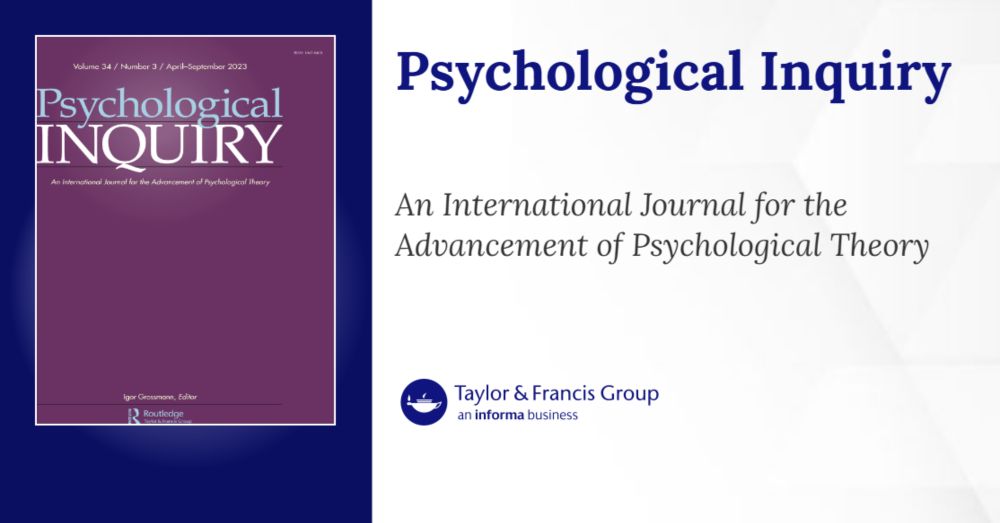
Maps by Which We May Not Steer: Why Psychologists Should Expect Low Belief-Behavior Correspondence
Published in Psychological Inquiry: An International Journal for the Advancement of Psychological Theory (Vol. 36, No. 1, 2025)
www.tandfonline.com
May 14, 2025 at 4:22 PM
"cognitive scientists should *expect* low belief-behavior correlations: after all, beliefs may be maps by which we steer, but steering takes much more than just a map"
Reposted by Joseph Sommer
• Moè: intentions vs. reality
• Osman: mis/disinfo impacts @osman
• Pierre: consistency puzzles
• Sommer & Oktar: expecting low links @keremoktar.bsky.social @bayesandbounds.bsky.social
• Westaby et al.: behavioral reasoning
• Osman: mis/disinfo impacts @osman
• Pierre: consistency puzzles
• Sommer & Oktar: expecting low links @keremoktar.bsky.social @bayesandbounds.bsky.social
• Westaby et al.: behavioral reasoning
May 13, 2025 at 2:40 PM
• Moè: intentions vs. reality
• Osman: mis/disinfo impacts @osman
• Pierre: consistency puzzles
• Sommer & Oktar: expecting low links @keremoktar.bsky.social @bayesandbounds.bsky.social
• Westaby et al.: behavioral reasoning
• Osman: mis/disinfo impacts @osman
• Pierre: consistency puzzles
• Sommer & Oktar: expecting low links @keremoktar.bsky.social @bayesandbounds.bsky.social
• Westaby et al.: behavioral reasoning
The Venn diagram of the target demographic for this beer and me might be a circle
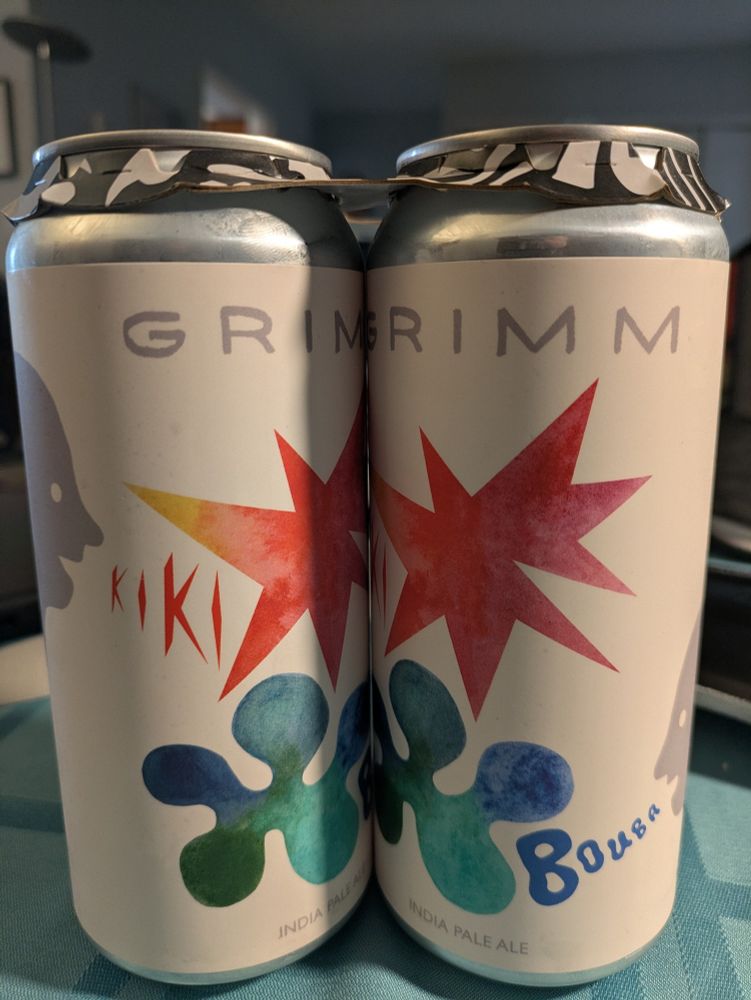
March 14, 2025 at 9:10 PM
The Venn diagram of the target demographic for this beer and me might be a circle
Well, the bar seems clear
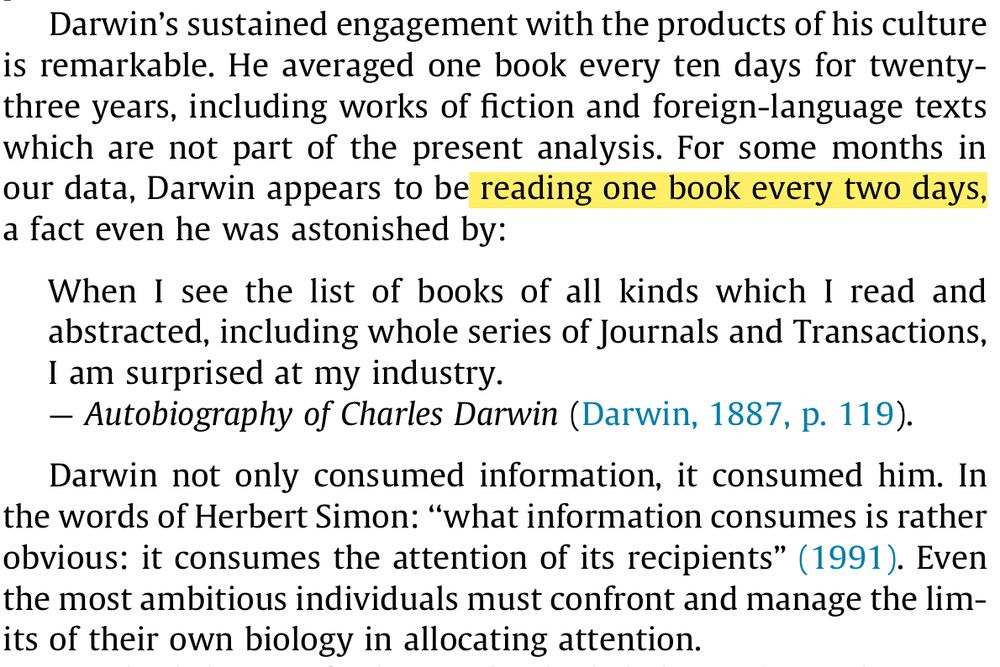
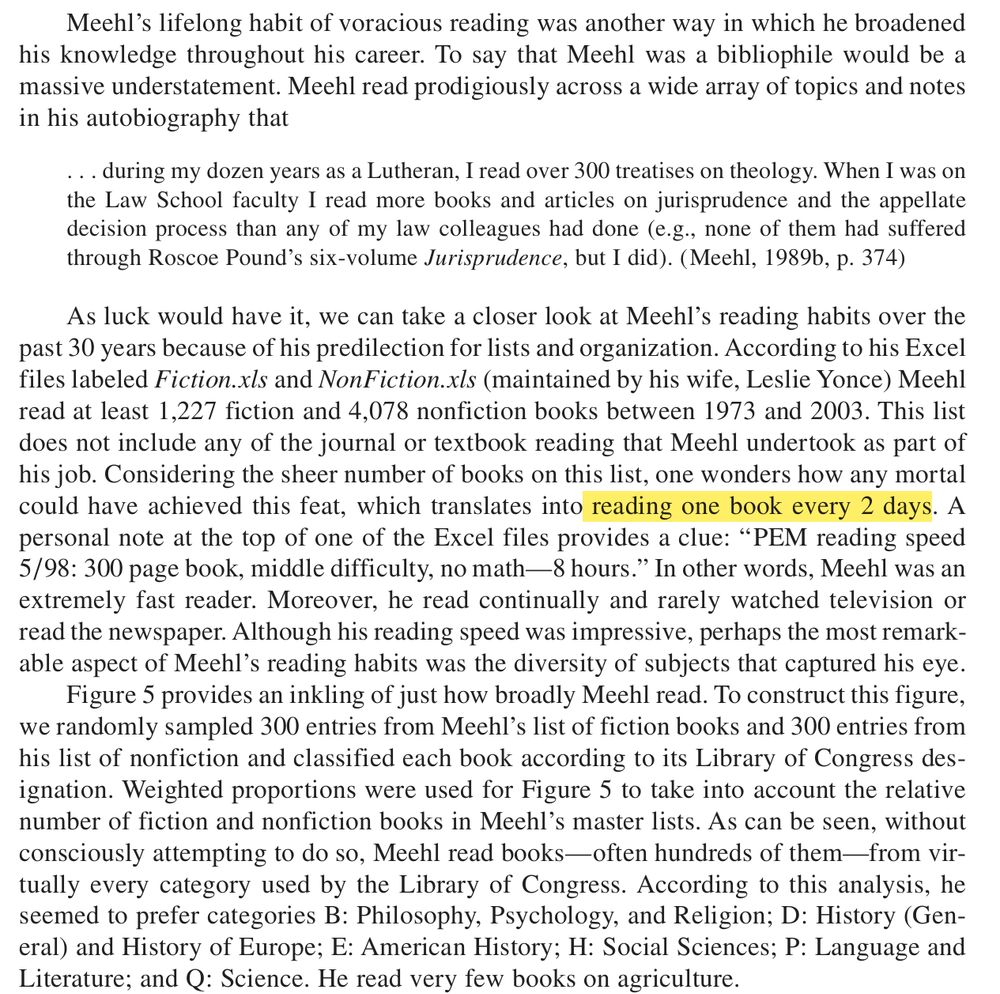
February 6, 2025 at 4:40 PM
Well, the bar seems clear
Reposted by Joseph Sommer
Last new year's, I hung out with my friend Joseph @bayesandbounds.bsky.social to talk about the 100 most influential works in cognitive science. All the big names are here: Turing, Fodor, Marr, Miller, (Joseph's favorite) Herb Simon, and of course - Noam Chomsky!
youtu.be/Zu6ZoZsRGG0
youtu.be/Zu6ZoZsRGG0

10 most important books in Cognitive Science
YouTube video by Language of Mind
youtu.be
January 1, 2025 at 4:54 AM
Last new year's, I hung out with my friend Joseph @bayesandbounds.bsky.social to talk about the 100 most influential works in cognitive science. All the big names are here: Turing, Fodor, Marr, Miller, (Joseph's favorite) Herb Simon, and of course - Noam Chomsky!
youtu.be/Zu6ZoZsRGG0
youtu.be/Zu6ZoZsRGG0
Psychoanalysis has concepts of a plan

December 25, 2024 at 6:00 PM
Psychoanalysis has concepts of a plan
Reposted by Joseph Sommer
I regularly invite my students to ponder the puzzle of how humans often violate Bayes theorem and yet tiny bumblebee brains are capable of optimal Bayesian foraging. This paper might offer the solution: psycnet.apa.org/record/2023-... @bayesandbounds.bsky.social
APA PsycNet
psycnet.apa.org
December 12, 2024 at 5:50 PM
I regularly invite my students to ponder the puzzle of how humans often violate Bayes theorem and yet tiny bumblebee brains are capable of optimal Bayesian foraging. This paper might offer the solution: psycnet.apa.org/record/2023-... @bayesandbounds.bsky.social
Reposted by Joseph Sommer
This was a very interesting summary and commentary on a book I haven’t read yet (Religion as Make-Believe). I think the question “what are beliefs even?” may be one of the most consequential in psychology/philosophy of mind.
philpapers.org/rec/SOMRAB
philpapers.org/rec/SOMRAB

Joseph Sommer, Religion as belief, a realist theory: a commentary on _Religion as Make-Believe, A Theory of Belief, Imagination, and Group Identity_ - PhilPapers
Van Leeuwen’s Religion as Make-Believe, A Theory of Belief, Imagination, and Group Identity argues that religious and political beliefs are fundamentally different from mundane, factual beliefs and re...
philpapers.org
December 6, 2024 at 4:41 PM
This was a very interesting summary and commentary on a book I haven’t read yet (Religion as Make-Believe). I think the question “what are beliefs even?” may be one of the most consequential in psychology/philosophy of mind.
philpapers.org/rec/SOMRAB
philpapers.org/rec/SOMRAB
Reposted by Joseph Sommer
Consider two beliefs:
1. Believing that the bathroom is down the hall
2. Believing that the Democratic Party is a threat to our whole society
It seems like there’s some deep difference between these two beliefs. But what is the difference? Our studies explore that question
1. Believing that the bathroom is down the hall
2. Believing that the Democratic Party is a threat to our whole society
It seems like there’s some deep difference between these two beliefs. But what is the difference? Our studies explore that question
Recently investigated what it means for a belief to represent identity with @xphilosopher.bsky.social. It's seemingly unrelated to whether the belief is subjective!
See where beliefs landed on identity (symbolic) and subjectivity: plotly.com/~m.meyer/6/
Here's the paper: osf.io/preprints/ps...
See where beliefs landed on identity (symbolic) and subjectivity: plotly.com/~m.meyer/6/
Here's the paper: osf.io/preprints/ps...
Individual Responses Organized by Factor Scores | scatter chart made by M.meyer | plotly
plotly.com
November 30, 2024 at 6:18 PM
Consider two beliefs:
1. Believing that the bathroom is down the hall
2. Believing that the Democratic Party is a threat to our whole society
It seems like there’s some deep difference between these two beliefs. But what is the difference? Our studies explore that question
1. Believing that the bathroom is down the hall
2. Believing that the Democratic Party is a threat to our whole society
It seems like there’s some deep difference between these two beliefs. But what is the difference? Our studies explore that question
Cosign: "Herbert Simon ftw"
These two papers, taken together, really cause a rethinking of behavioral economies.
Rather than having anomalous risk preferences; it looks like people have complexity aversion to "hard" decisions, especially on valuation, which drives behavioral anomalies. Herbert Simon ftw.
Rather than having anomalous risk preferences; it looks like people have complexity aversion to "hard" decisions, especially on valuation, which drives behavioral anomalies. Herbert Simon ftw.
November 28, 2024 at 2:37 AM
Cosign: "Herbert Simon ftw"
"An extrapolation of its present rate of growth reveals that in the not too distant future Physical Review will fill bookshelves at a speed exceeding that of light. This is not forbidden by general relativity since no information is being conveyed" (Mermin, 1990)
Never felt better about my decision to publish as little as possible
The strain on scientific publishing: we set out to characterise the remarkable growth of the scientific literature in the last few years, in spite of declining growth in total scientists. What is going on?
direct.mit.edu/qss/article/...
A 🧵 1/n
#AcademicSky #PhDchat #ScientificPublishing #SciPub
direct.mit.edu/qss/article/...
A 🧵 1/n
#AcademicSky #PhDchat #ScientificPublishing #SciPub
November 25, 2024 at 6:06 PM
"An extrapolation of its present rate of growth reveals that in the not too distant future Physical Review will fill bookshelves at a speed exceeding that of light. This is not forbidden by general relativity since no information is being conveyed" (Mermin, 1990)
Reposted by Joseph Sommer
3. @bayesandbounds.bsky.social reported progress on identifying the mechanism(s) of a phenomena reported in [...checks notes...] the 1960s!
Further confirmation may involve think-aloud protocols — one of my favorites! 🤓
#Bayes #probability #cogSci #epistemology #xPhi #psychology #logic #history
Further confirmation may involve think-aloud protocols — one of my favorites! 🤓
#Bayes #probability #cogSci #epistemology #xPhi #psychology #logic #history
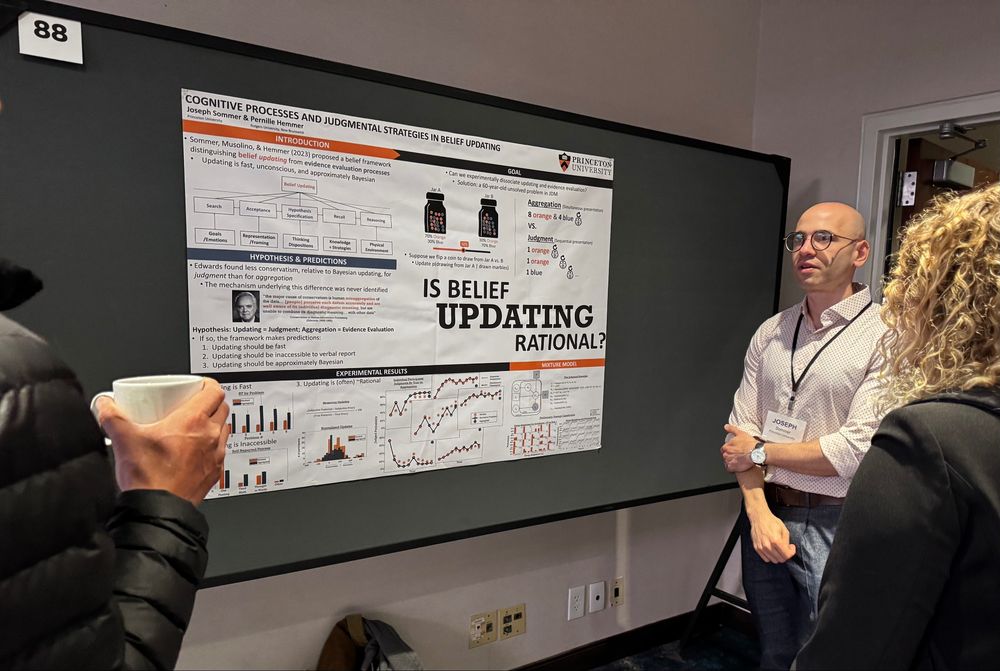
November 25, 2024 at 2:41 PM
3. @bayesandbounds.bsky.social reported progress on identifying the mechanism(s) of a phenomena reported in [...checks notes...] the 1960s!
Further confirmation may involve think-aloud protocols — one of my favorites! 🤓
#Bayes #probability #cogSci #epistemology #xPhi #psychology #logic #history
Further confirmation may involve think-aloud protocols — one of my favorites! 🤓
#Bayes #probability #cogSci #epistemology #xPhi #psychology #logic #history

